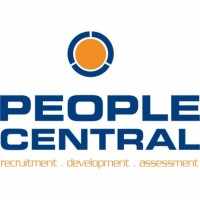
The Demand for Precision in Tech Hiring
The tech sector is a tough place to land work of late, as employers are looking for staffers to be nimble and ready to problem-solve. To help combat this, organizations are increasingly using cognitive ability tests that measure critical thinking and mental agility. These are tools designed to find people who can learn quickly, handle complexity , and work under pressure. That’s why cognitive abilities tests are increasingly important in the context of today’s personnel selection.
What Cognitive Testing Tests For
Unlike technical screens, which test hard skills, cognitive ability tests measure a candidate’s reasoning, memory, number skills, and ability to solve puzzles. These traits are crucial in tech roles where workers are forced to change often and learn on the fly. By emphasizing future potential over past experience, cognitive ability tests enable companies to gauge long-term fit and adaptability with much more precision.
Bias Reduction and Fairness Enhancement
The hiring methods that have been most common have always been a hotbed of unconscious bias, particularly when using résumés or subjective interviews. On the other hand, cognitive ability tests yield an objective, standardized estimate of ability. This levels the playing field in hiring and allows people of various educational and professional backgrounds to succeed. It is good for employers in the sense that it finds the diamonds in the rough that might otherwise slip through the cracks of traditional methods.
More Accurate Reflectors of On-the-Job Performance
Studies consistently find that measures of cognitive ability, like general intelligence, are among the best and most valid predictors of future job performance and are particularly predictive in terms of work complexity and speed of learning, such as in tech. They allow hiring managers to see how someone will tackle real-world problems – from debugging problems to acquiring new technology knowledge. Employing cognitive ability tests coupled with skills tests greatly improves the clarity and confidence involved in choosing the right candidate.
Towards efficient and scalable recruitment support
Tech hiring can see a high number of applicants, particularly for entry- or mid-level positions. Cognitive ability tests expedite this by allowing you to quickly and reliably identify who will struggle and who will shine. Prioritizing cognitive capability early on in the hiring funnel enables organizations to easily sift through the less-promising applicants and save time while preserving quality.
Improving Team Dynamics and Innovation
For jobs that involve teamwork, creativity, and strategizing, cognitive variety counts. Cognitive ability assessments can help ensure that teams are comprised of people with high levels of reasoning ability and different viewpoints. This adds up to better problem-solving, more creativity, and healthier project results. This type of assessment is crucial for tech teams in particular, as they work to develop dynamic, high-performing teams.
Conclusion
In a profession in which agility and learning rate - and, with it, the ability to adapt - are at a premium, cognitive ability tests clearly have a lot to give. They provide better insight into a candidate's skill set and help make more informed, unbiased hiring decisions. As businesses future-proof their teams, cognitive ability testing within a wider recruitment strategy will continue to be an intelligent and scalable method.




Write a comment ...